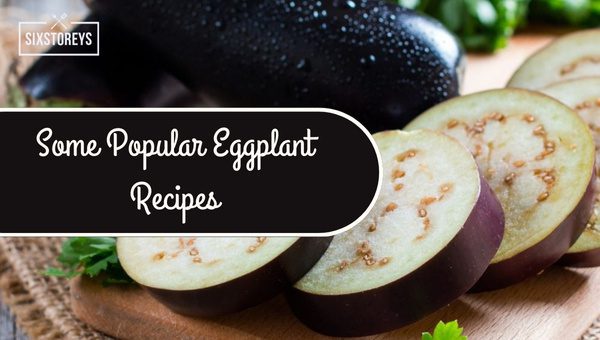What Does Eggplant Taste Like? Discover Its Magic
Ever found yourself staring at the glorious purple hue of an eggplant in your local supermarket, wondering what this strikingly colored vegetable could possibly taste like? If so, you're certainly not alone! The eggplant, also known as aubergine in many parts of the world, is a bit of a mystery to some, often because its taste isn't as straightforward as, say, a carrot or a potato. So, "what does eggplant taste like?" you might ask.
Well, answering that question fully can take us on quite a culinary voyage. The unique flavor profile of an eggplant is a delightful combination of textures and tastes that vary remarkably based on how it's prepared. This underlying versatility makes eggplant an excellent canvas for a wide range of dishes around the world. So, join me on this flavorful expedition as we uncover the true taste of eggplant.
Also Read: What Does Fennel Taste Like?
Article Includes
What Does Eggplant Taste Like?

Eggplant predominantly tastes mild with a slightly bitter undertone and a soft, creamy texture when cooked. It's essential to remember that the taste of eggplant can vary drastically based on where it's grown, how it's stored, and most importantly, how it's cooked.
The Raw Eggplant
In its raw state, eggplant has a somewhat bitter flavor and a spongy texture. You wouldn't typically eat it raw due to this bitterness; unless it's a very young, tender eggplant.
Peel or No Peel?
The thick, shiny purple skin is also a significant player in the overall taste profile of an eggplant. The skin can be somewhat bitter, so individuals who are sensitive to bitter flavors might prefer peeling it off. However, the skin does soften with cooking and adds a pleasant contrast to the soft flesh in terms of texture.
Cooked Eggplant: A Culinary Chameleon
Perhaps, the most exciting thing about eggplant is how it changes when you apply heat. When cooked, eggplant transforms into a tender, rich, and creamy delight.
- Grilling or Roasting: These methods bring out a smoky flavor in the eggplant while softening its texture to a pleasant creaminess. A simple recipe to taste this transformation would be baba ganoush, a Middle Eastern dip.
- Frying or Sauteing: Eggplant absorbs oil or butter like a sponge, which can make them incredibly rich and decadent when fried or sautéd. In Italian cuisine, Eggplant Parmesan is a popular dish showcasing this preparation method.
- Steaming or Boiling: These methods keep the eggplant's inherent bitterness in check, producing a neutral flavor that can easily take on the taste of sauces or spices.
The taste of eggplant is heavily dependent on its preparation. Its ability to absorb other flavors makes it a versatile ingredient capable of starring in dishes around the globe.
The Role of Preparation in Eggplant Flavo
One thing about the humble eggplant that may surprise you is how Changeable its flavor can be based on the cooking method. This factor makes eggplant a quintessential 'culinary chameleon'.
Roasting does wonders to an eggplant. It brings out a smooth, rich, and smoky flavor that's astounding and fills the mouth with a blend of sweet and savory sensations. While grilling introduces a delightful smoky flavor to the eggplant, frying or sautéing it tends to make the flesh creamy and imparts a distinctive earthy sweetness. Truly, the sky's the limit when it comes to tailoring this versatile vegetable to your preferences.
Dealing with Bitterness: Tips to Draw out Best Eggplant's Flavor

As mentioned earlier, raw or poorly cooked eggplant can often taste bitter—a phenomenon primarily due to the presence of a compound called 'solanine'. But fear not, there are ways to deal with this!
Several cultures across the globe follow a technique known as 'salting'. This process entails sprinkling the sliced eggplant with a generous amount of salt and letting it rest for about half an hour. This activity draws out the excess water and with it, the solanine, reducing the bitterness significantly.
Another trick is to pick 'young and fresh' eggplants as they are usually less bitter than their older or overripe counterparts. The lack of seeds inside a young eggplant is a good indication of its freshness.
With these techniques at your disposal, you can be sure to eliminate the unwanted bitterness and draw out the best flavors of eggplant. The world of eggplant dishes awaits you with open arms, ready to introduce you to a unique and delicious flavor profile. So why wait? Let your culinary adventure with the mighty eggplant begin!
Pairing up Eggplant: Complementary Flavors
Eggplant is an amicable fellow in the veggie world that plays well with a range of flavors. Given its relatively neutral taste, it nicely absorbs the essence of anything it is cooked with. Here's a list of complimentary flavors to spruce up your eggplant experience:
- Herbs and Spices: Basil, oregano, garlic, and cayenne pepper are known to enhance eggplant’s taste. Middle Eastern spices like cumin and coriander are also great additions.
- Cheese: Parmesan, mozzarella, and feta add a splendid contrast to the flavor of eggplants. The rich, creamy texture of cheese complements the eggplant perfectly.
- Sauces: Tomato-based sauces and soy sauce work wonders with eggplant in various cuisines.
- Other Vegetables: Roasted, stuffed, or mixed in a salad - eggplants pair well with tomatoes, bell peppers, and zucchini.
- Nuts: Add a crunchy twist to your eggplant dishes with pine nuts or walnuts.
- Meat: Eggplant acts as a hearty companion to lamb, beef, and other meats, soaking the flavors from the meat while adding its unique touch.
Some Popular Eggplant Recipes

Looking to entice your taste buds with some eggplant magic? Here are a few delectable dishes worth exploring:
Eggplant Parmesan
In this classic recipe, eggplant slices are breaded, fried, and then baked with tomato sauce and Mozzarella. It's Italian comfort food at its finest.
Baba Ganoush
This Middle Eastern delicacy is a savory dip made from roasted eggplants, tahini, and other spices. It's a great appetizer with pita bread.
Ratatouille
Straight from the French countryside, Ratatouille is a heart-warming stew with eggplant, zucchini, and bell peppers simmered in a tangy tomato base.
Eggplant Stir-fry
A notch above the usual stir-fry, this Asian-inspired dish combines eggplant, bell peppers, and mushrooms with a savory garlic sauce.
See? Eggplant is bursting with potential as a versatile ingredient waiting to be explored. With thoughtful ingredient pairing and the right recipes, you can unlock the fabulous flavors of eggplant in your kitchen.
Also Read: What Does Scallop Taste Like?
Frequently Asked Questions
Is eggplant supposed to be bitter?
Eggplants can sometimes have a slightly bitter flavor, especially if they're not fresh or they are prepared incorrectly. However, with the right techniques, such as salting, the bitterness can be reduced.
Why does my cooked eggplant taste bitter?
Cooked eggplant may taste bitter if it's not prepared properly. Overcooking it, using older eggplants, or not properly draining can contribute to a bitter taste.
Does the type of eggplant affect the taste?
Yes, different types of eggplants do have slightly different tastes and textures. For instance, Chinese eggplants tend to be sweeter and less bitter than some of their European counterparts.
What vegetables mix well with eggplant?
Eggplant pairs well with a variety of ingredients, including tomatoes, peppers, onions, garlic, zucchini, and herbs like basil and parsley.
Is roasted eggplant sweet?
Roasting eggplant helps to bring out its natural sweet flavor, particularly when roasted at high temperature until it's well caramelized.
Is eggplant good for you?
Yes, eggplant is low in calories and a good source of dietary fiber. It's also rich in antioxidants and certain vitamins and minerals.
Can you eat eggplant skin?
Absolutely! In fact, much of the fiber and antioxidants in eggplant are contained in the skin. However, some people prefer to peel it because it can sometimes be tough.
How should I store eggplant?
It's best to store eggplants in a cool, dry place, but not in the refrigerator. They're sensitive to both heat and cold and can be stored best at around 50 degrees Fahrenheit.
Can I substitute eggplant for meat in recipes?
Definitely! Eggplant is referred to as the 'king of vegetables' for a reason. When cooked right, it gives a meaty texture, which makes it popular in vegetarian and vegan dishes as a meat substitute.
Conclusion
From our thorough exploration, it's clear that the taste of eggplant offers an exciting adventure of its own. The versatile vegetable presents a unique tapestry of flavors; sometimes mild and creamy, other times smoky or even succulently sweet depending on how it's prepared. The delightful richness of well-cooked eggplant, coupled with its impressive health benefits, indeed makes it a culinary treasure worth exploring.
So next time you come across the vibrant purple hue in your local market, don't hesitate! Remember, the eggplant is a chameleon of tastes waiting for you to discover its full potential. Here's hoping your experience with the eggplant unfolds as nothing short of a flavor-packed journey.
